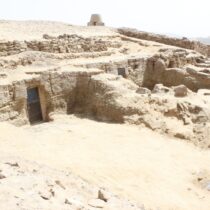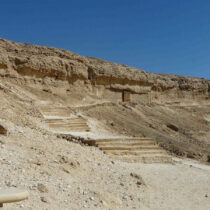The issue of the return of the Parthenon Sculptures to Greece was raised by Prime Minister Kyriakos Mitsotakis during his speech at an event celebrating the 75th anniversary of the founding of UNESCO.
“There can be no dialogue between nations if there is no dialogue between cultures, which presupposes respect for the history, heritage and identity of each nation. In my opinion, this means that emblematic monuments, which are inextricably linked to the identity of a nation, should be a matter for that nation. Let us consider the issue of the Parthenon Sculptures, which are an extremely important part of the world cultural heritage, while at the same time they are perhaps the most important symbolic connection between modern Greeks and their ancestors”, said Mr. Mitsotakis.
The Prime Minister noted that most of this collection is on display at the Acropolis Museum, a few hundred meters from the Parthenon. “The fact that one can see the Parthenon Sculptures at this spot, in their birthplace, visually connected to the monument that gives them their universal radiance, is of extremely great significance”, he continued and pointed out that “while part of the collection remains ‘exiled’ in London, this aspect cannot be fully appreciated. For this reason, I believe it is necessary for the Parthenon Sculptures located in London to be reunited with the greater part of the collection in Athens. Last September, a key step was taken by the UNESCO Intergovernmental Commission for the Promotion of the Return of Cultural Property. For the first time, it unanimously adopted a decision recognizing that ‘the case is intergovernmental in nature and, therefore, the obligation to return the Parthenon Sculptures is entirely up to the United Kingdom government'”, said the Prime Minister.
Kyriakos Mitsotakis added that the United Kingdom should enter into a bona fide dialogue with Greece. “And I urge them to do it. Besides, this year marks the 200th anniversary of the beginning of the Struggle for the Independence of Greece. There could not be a better time than this for the return of the missing sections and the reunification of the Parthenon Sculptures in the place of their birth, Greece”, he said.
To celebrate the 75th anniversary of the founding of UNESCO at its headquarters in Paris, the Prime Minister said it was an excellent opportunity “to reaffirm our countries’ commitment to the founding spirit of this important International Organization: to build peace among countries through of the exchange and reciprocity of moral and spiritual virtues, as Aristotle would say”.
Mitsotakis underlined that Greece was one of the founding members of UNESCO. “It is not just our confidence in the principles of multilateral cooperation that explains our commitment. It is also our belief that there can be neither peace nor prosperity without a dialogue between the nations around these three fundamental pillars: education, science and culture”, he added. “We believe”, he said, “in education, which is the only way to understand the functioning of an increasingly complex world. We also believe in the innumerable possibilities offered by science and technology” and referred to the inauguration of the project “Ancient Olympia: Common Ground”.
“A unique partnership with Microsoft that utilizes the power of artificial intelligence and opens up new paths for a whole new experience in how we can approach our cultural heritage and all that it symbolizes. One can now experience the scale of Olympia, as it was in the past, at the archaeological site itself or from anywhere in the world, using state of the art augmented reality tools”, he said.
He also said that we are talking about innovation management to open new paths for the preservation of cultural heritage and also enable the public to have access to it – a mission that is increasingly vital, in an era of great change.
“Because climate change, environmental pollution and international conflicts are affecting our present and shaping our future. However, they also have serious implications for our common past. Extreme environmental and climate change are an immediate and growing threat to the great monuments of civilization. It is this threat that has convinced us of the need to take action, and so we have decided to present an initiative that we consider important and which is called ‘Tackling the Impact of Climate Change on Cultural and Natural Heritage’,” he said, thanking UNESCO for its invaluable support of Greece’s initiative and stressed our country’s commitment to its third pillar, culture.





